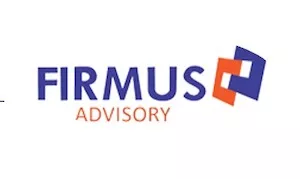- within Technology topic(s)
- within Finance and Banking, Immigration and Tax topic(s)
- in United Kingdom
- with readers working within the Metals & Mining industries
A Payment Terminal Service Provider (PTSP) license is one issued to financial technology companies for deploying, maintaining, and supporting POS terminals services. The Central Bank of Nigeria (CBN) is the regulatory body responsible for regulating and issuing PTSP licenses to companies.
This license is mostly used by financial technology (Fintech) companies such as Callphone Limited, 3Line Card Management, Appmart Integrated Limited, Betastack Technology Limited, Capricorn Digital Limited, Blusalt Financial Services Limited and a host of others.
Requirements for obtaining the License
- Certificate of Incorporation of the company (The company must be registered with a minimum paid up share capital of NGN100,000)
- Memorandum & Articles of Association
- Form CAC 2A (now Status Report from CAC)
- Form CAC 7A (now Status Report from CAC)
- Tax Clearance Certificate for three (3) years of the company (if applicable) and Taxpayer Identification Number (TIN) of company
- The company's profile; detailing current type of business operation, products and services
- Structure of holding company or parent company (if applicable)
- Details of ownership: private/public; ultimate parent; any significant changes in ownership in the last two years
- Total number of employees
- Organogram
- Functional physical address, contact e -mails from company's domain and telephone numbers
- Board Structure – showing at a minimum Chairman, CEO/MD, and at least, one (1) Independent Non -Executive Director and other Director(s)
- Bank Verification Number (BVN), Curricula Vitae (CVs), proof of government issued identity (National Identification Number (NIN), International Passport, Driver's Licence, Voter's Card) of Board and top management team.
- A business Plan which must include:
- Nature of the business
- Features of the scheme
- Security features that will be put in place
- 5 years financial projections
- Proposed schedule of charges
- Profit sharing arrangement
- Diagrammatic illustration of transaction flows
- Understanding of the nature of the POS business and support requirements
- Terminal deployment and connectivity strategy
- POS support strategy (on -site and offsite) and strategy to ensure failures are remotely detected and fixed within 72 hours
- Transaction fees and other charges to be borne by customers
- Strategy for ensuring 99.9% uptime for terminals
- Training and merchant relationship management strategy
- Customer care and issue resolution strategy
- Project work plan that demonstrates readiness/ability to commence work.
- Partnerships & Alliances – scope, duration, and other pertinent details
- Competitive advantage/value proposition
- Planned coverage area
- Experience with this activity or something similar in the past
- Information Technology policy of the company including:
- Privacy Policy
- Information Ownership/Disclosure/Loss Policy
- Backup and Restore Policy
- Network Security Policy
- Encryption Policy
- Confidential Data Policy
- Password Policy
- Third Party Connection Policy
- Incidence Response Policy
- Physical Security Policy
- Enterprise Risk Management Framework
- Dispute Resolution Framework
- Contingency and Disaster Recovery Plan (Business Continuity Plan)
- Duly executed agreements (drafts, as applicable) with the following:
- Technical partners
- Participating banks
- Merchants
- Telcos
- Any other relevant party
- Project Deployment Methodology
- A document that shall outline the strategy of the shared agent network including current and potential engagements, geographical spread and benefits to be derived
- Qualifying criteria for engaging agents such as:
- Outreach
- Competence
- Integrity
- Draft Service Level Agreements (SLAs) with sub-agents and Financial Institution (FI) Agent Banking Contract
- Risk management, internal control, operational procedures and any other policy and procedures relevant to the management of an agent banking arrangement
- Procedures for KYC and AML/CFT compliance
- Fraud detection plan and standard of care
- Consumer Protection Policy and Procedure Board Approval
- Certifications such as:
- Payment Card Industry Data Security Standard (PCIDSS) Certification (if applicable)
- Payment Application Data Security Standard (PADSS) Certification or Compliance with CBN IT Standards for Solution Development (if applicable)
- Payment Terminal Service Aggregator (PTSA) of Payment Terminal Application Certification
- Other relevant certifications
To view the article in full click here
The content of this article is intended to provide a general guide to the subject matter. Specialist advice should be sought about your specific circumstances.


